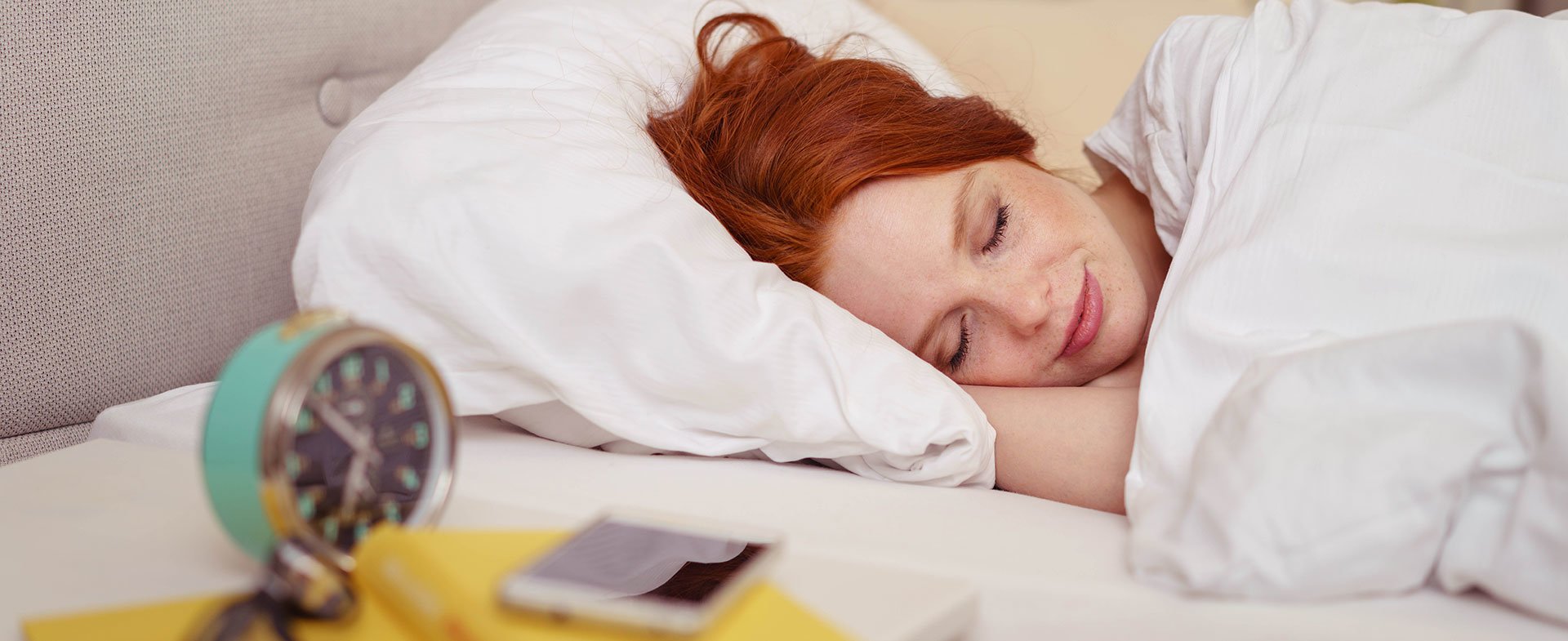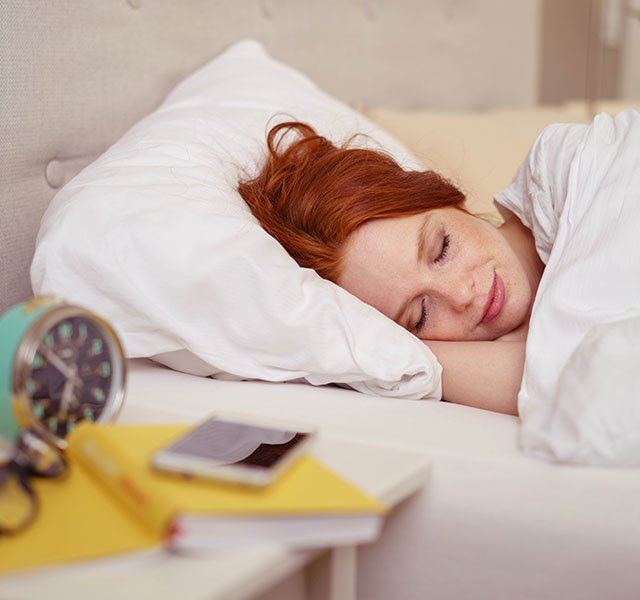Summer is prime time for vacations, outdoor activities and late-night festivities, all of which can mess with sleep schedules. Add air travel to the mix, particularly a flight that crosses time zones, and your sleep schedule is sure to be out of whack. But the fact is, you still need solid sleep, even if summer makes it harder to hit the pillow.
“During the summer months when it stays light later into the night, the timing of when you feel sleepy—and when you wake up—may change,” says Philip Cheng, Ph.D., a research scientist at the Sleep Disorders and Research Center at Henry Ford Health. “But the average adult still needs 7 to 9 hours of sleep each night, no matter what the season. And kids need even more.” In fact, kids who may have lost sleep during a busy school year often play catch up on sleep during the summer months.
Don’t take a vacation from a solid sleep schedule. Rest easier with Dr. Cheng’s five strategies to maximize summertime shuteye.
- Use light wisely. Since the sun sets later in the summer, your body’s internal clock may get delayed, which poses a challenge if your morning wake-up times remain the same. To minimize this effect, step into the sunshine first thing in the morning or sit by a bright window. The light exposure signals your body that it’s time to get moving, and resets your internal clock. Then limit your exposure to sunlight in the evening hours, so your body knows it’s time to slow down. That is the basic principle behind light therapy. Time it right and you can advance (or delay) your sleep cycle.
- Keep it cool. The ideal temperature for sleep hovers around 60 to 70 degrees Fahrenheit. Since cool temps help you fall asleep, program your air conditioner to a lower temp at bedtime, with a tick upwards in temperature in the latter part of the night. Your core body temperature is lowest late in the night, and therefore higher temperatures may feel more tolerable.
- Mask outdoor noise. With open windows and neighbors who may keep later hours, falling asleep can be a challenge. Your best bet: Amp up the soothing background noise. The low continuous hums from a fan or noise machine can help drown out disruptive racket.
- Limit strenuous physical activity in the evening. Exercise raises your core body temperature. If your body is still warm at bedtime, you can have trouble falling asleep. Instead, schedule exercise in the late afternoon. That way, your body temperature will drop 3 to 4 hours later – right when you’re ready for bed. You’ll not only sleep more deeply, you’ll feel more rested in the morning.
- Ditch your devices. During summer, parents may be more lax about electronics restrictions. Trouble is, computers, tablets, e-readers and other devices interfere with the body’s natural clock, making sleep more difficult. Encourage kids to “check in” cell phones, iPads and other backlit devices at least 1 hour before bed. Establish the same rule for adults! Then, indulge in a calming ritual to lull you to sleep.
Heading out of town? Vacation poses additional challenges to good slumber. Not only are you sleeping in a new environment, you may also be crossing time zones. Both put your brain on high alert.
“While the phenomenon is commonly referred to as ‘the first night effect,’ it may in some cases last up to three days,” says Dr. Cheng. “That could be half of your vacation.”
To prepare: Make sure your family is well rested before you leave. Then gradually prepare your body for the time change by adjusting sleep and wake times in small increments during the days before departure, just as you might for Daylight Savings Time. Apps for jet lag, such as Jet Lag Rooster and Entrain can help: Just punch in your current time, and when and where you’re traveling, and it’ll give you a schedule to follow.
If your sleep concerns extend beyond the summer months, or if you’ve been struggling from insomnia or daytime sluggishness, make an appointment with a sleep specialist.
For more information or to make an appointment with the Henry Ford Sleep Center, call (248) 344-7361 or visiting henryford.com/sleep to learn more.



